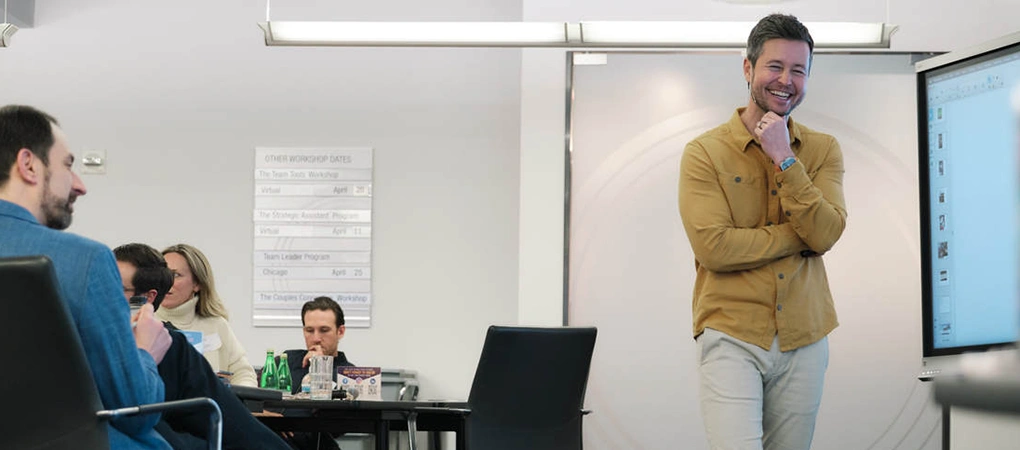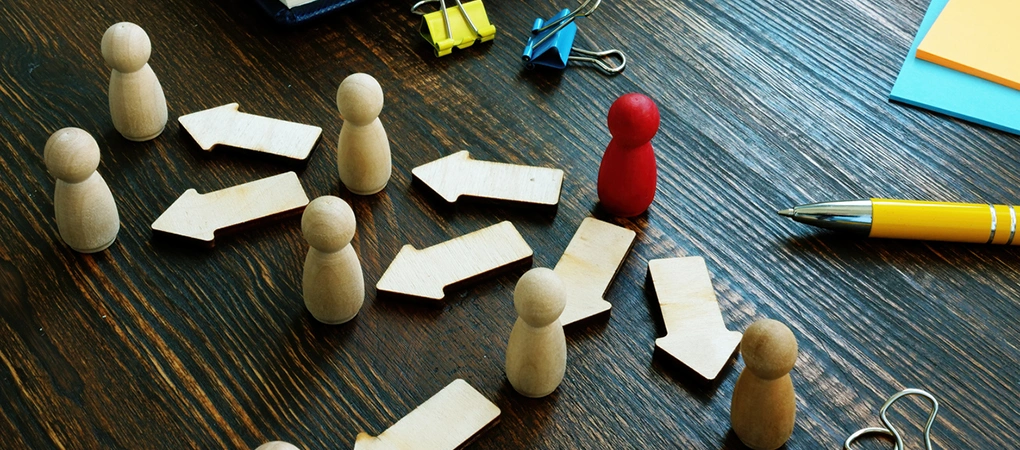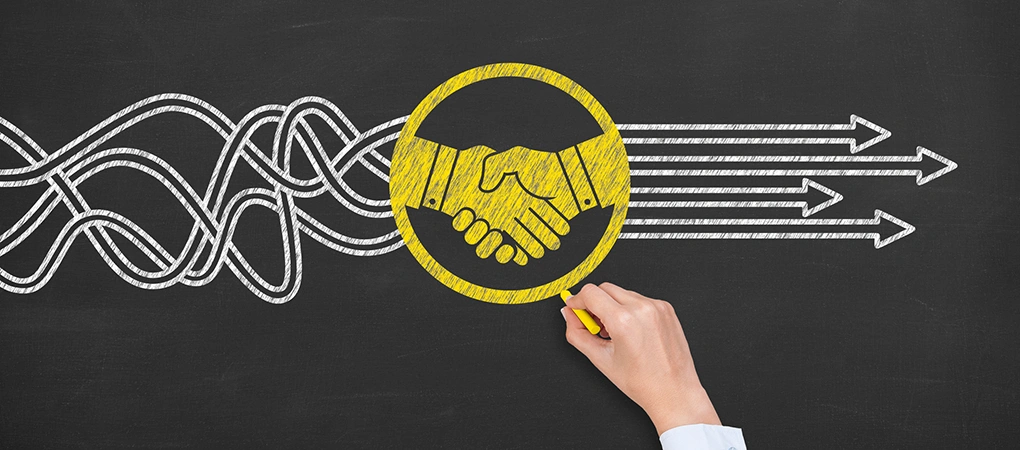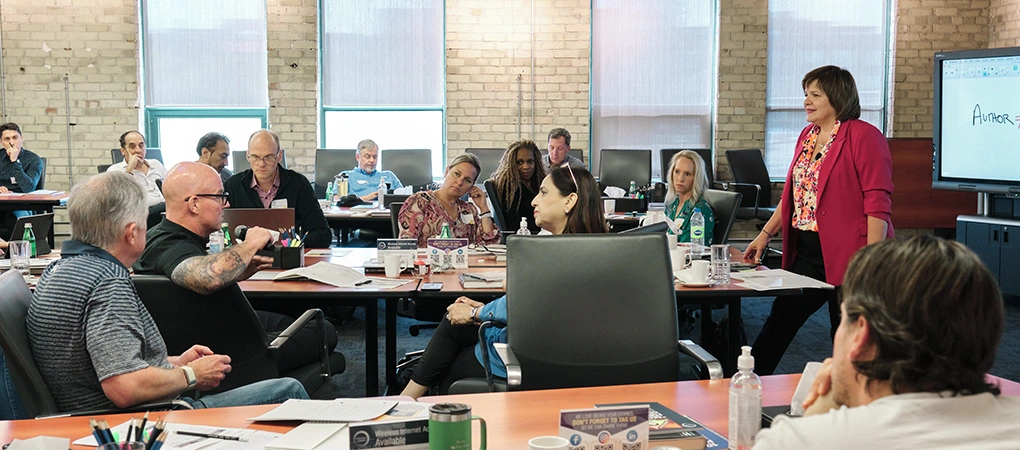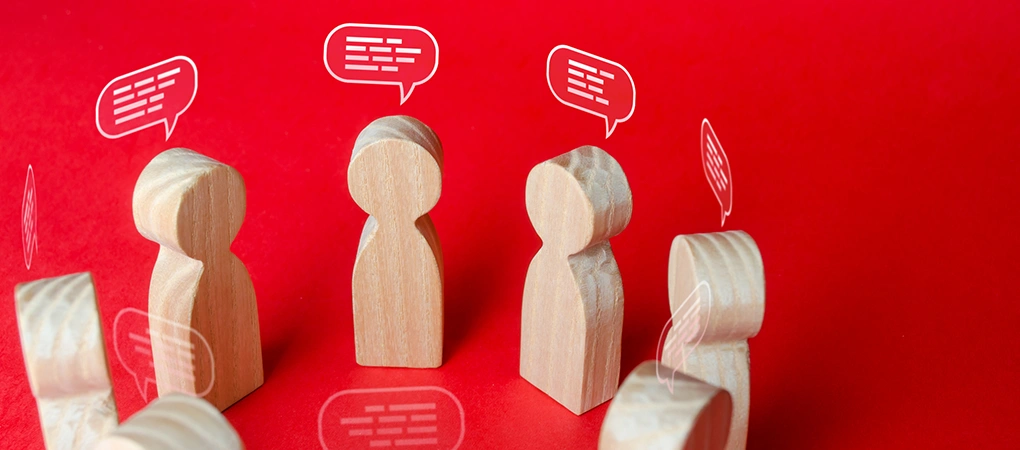Unsatisfied With Your Progress? This Could Be Why
Dan Sullivan

The following is an excerpt from the book The Gap And The Gain by Dan Sullivan.
There’s a condition I call “being in The Gap” and it’s one I’ve noticed particularly among high-performing, talented, ambitious entrepreneurs.
In one of my workshops, there was a client who was chronically unable to enjoy his achievements. It bothered me, and I decided to use the flip chart in the room to illustrate to him what he was doing. I drew a diagram that showed his starting point on the bottom, the ideal he was aiming for on the top, and in the middle, the goal he had actually accomplished.
I showed him that he was defining his success by measuring where he was — the goal he had achieved — against the ideal he had set out for himself. I said that the distance between his goal and his ideal is “The Gap.” Measuring your progress this way only leads to unhappiness. The true way to measure is by looking from where you are back to where you started and seeing all the progress you’ve made. Measuring this way leads to happiness.
You might be operating at a level that everyone else thinks of as impressive and superior, but you, yourself, feel like you’ve fallen short of your standard.
When this happens, it isn’t because there’s anything wrong with you or your achievements; it’s because there’s something in the way you’re thinking about things that produces this impression. It’s the way you measure that makes all the difference in how you view your success.
Your brain isn’t you.
We use our brains to experience the world around us, but we can also use them to observe situations from different angles and to be conscious of the ways in which we’re experiencing things. You can ask yourself, “How am I looking at this? Why am I looking at it this way?” In other words, you can think about your thinking.
Thanks to evolution, our brains are very powerful tools. What we do, how we do it, and how we experience success and progress are all functions of how we use our brains to set up the things we want to achieve.
Since I was a child, I’ve been able to think about my thinking. I would talk to other kids about this, and none of them knew what I was talking about, and I’m not sure many of my teachers thought about their thinking either. As you’d imagine, once I realized that this activity I was doing was somewhat unique, I started to think about why I was doing it.
I discovered that rather than simply taking things in, I could be conscious of how my brain was working and consciously decide to use it in a practical way. The brain is primarily a problem-solving tool. People can be put into all kinds of problematic situations, and they will come up with all kinds of unique, strategic solutions to solve them. We’re at our happiest when we’re using our brains to visualize, achieve, and then measure actual progress we’ve made. But there is a right way and a wrong way to measure.
Measuring your progress against the ideal is an exercise in frustration. Make your goal-setting experience one of satisfaction, optimism, and confidence with Dan Sullivan’s process outlined in his book The Gap And The Gain.
Focusing on specifics.
We perceive things as being either good or bad depending on whether the specifics that are necessary for success have been defined and achieved.
I’ve noticed that people who measure their accomplishments in terms of specifics tend to be happier and a lot more energized than people who speak and think in generalities. Someone who responds to a question like, “How are things going?” with an answer like, “Things are pretty good” isn’t actually connecting with their real experience.
But if you think about specific facts when you assess your situation, this grounds your feeling in reality. For example, saying, “This recently completed project earned ten times as much money as it did last year” is very different from saying, “This project did pretty well,” If you work in the world of generalities, it’s easy to get confused about what’s really going on, and your sense of your achievements will be vague and unclear.
Made for measurement.
The more you use your brain to measure specifics, the better you get at it and the more you develop great insight into change, whether the change has been good or bad, or there’s been no real change at all.
Specifics must be measured against specifics. Trying to measure a specific against a generality is not real measurement. Setting up a goal of making $10 million is specific, and you’ll feel successful once you’ve done that by measuring from there back to where you started. But if you have the imprecise goal of “being wealthy,” that’s a generality. You may never feel like you’ve achieved it, and even if you do feel as though you have, this feeling won’t last because it’s not grounded in specific reality. The goal — being wealthy — will continue to change and always seem out of reach.
Making it uniquely yours.
What makes us unique is identified and realized through specifics, not through a general ideal. It’s the constant achievement of specific measurable progress that gradually develops the unique and superior skills and capabilities in individuals. And the more you use your brain to achieve and measure specifics, the more your brain is uniquely your own.
A lot of people have other people’s brains: their parents’, their teachers’, their mentors’ — whoever’s telling them how they’re supposed to be. You don’t really have your own brain until you set your own goals and appreciate your own specific experience.
Ownership makes it better.
Your future growth depends on the degree to which you own how you use your brain for specific progress. Someone who uses their brain to measure using generalities will be lacking in clarity when it comes to both achievements and what their future holds.
But if you think in specifics when it comes to measuring your progress, you’ll have an accurate perspective about what you’ve done and where you are, and you’ll be in a better position to plan ahead to get bigger and better at what you do.
